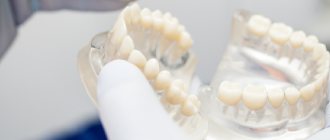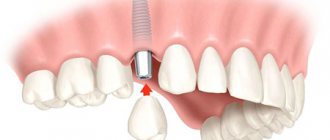Range of duties
Doctors' responsibilities include:
- Examination of clients and clarification of complaints, identification of symptoms;
- Referring patients for tests;
- Making a decision on the diagnosis;
- Prescription of treatment;
- Monitoring the progress of therapy;
- Conducting surgical treatment;
- Issuing recommendations for further recovery.
Doctors provide emergency care, prescribe rehabilitation procedures, and prepare reporting documentation. Doctors are engaged in research, developing new treatment methods and improving old ones.
Who is a pediatrician?
A pediatrician is a highly qualified specialist with a completed higher medical education, whose main task is to maintain health and treat diseases in children, as well as monitor the physical and mental development of the child, starting from the moment of his birth.
The name of the profession comes from the ancient Greek παιδίον (child) and ιατρεία (treatment). In Russia, people first started talking about pediatrics as an independent science relatively recently - in 1847, when a manual published by the first Russian pediatrician S.F. Khotovitsky, “Pediatrika,” appeared in print. Thus, pediatrics can safely be called a relatively “young” science. Although in fairness it should be noted that all the greatest scientists of antiquity and the Middle Ages recognized the fact that there is a category of diseases that has its own specifics and occurs only in children. They even described them in their writings. These were Hippocrates and Ibn Sina (we know him as Avicenna), Zhang Chung-ching and Paracelsus.
Unlike an adult doctor, a pediatrician is more concerned about disease prevention, for example, vaccinating young children. The second very important aspect of the profession is the treatment of childhood diseases and the ability to work with young patients. Therefore, along with knowledge of medicine, a pediatrician must also be a good psychologist, a teacher, and a bit of an artist. And all this for the noble goals of the little man’s recovery.
Another important responsibility of a pediatrician is working with parents. The pediatrician teaches young mothers how to handle the child and monitors the process. At the same time, the pediatrician must monitor cases where the child is being mistreated and notify children's social services. These duties impose additional, very serious responsibilities on the doctor.
If we talk about the professional responsibilities of a pediatrician more specifically, their list will look approximately as follows: scheduled (or unscheduled) examination of the child, determining the diagnosis and prescribing treatment (if a disease is detected), consulting parents on the care and feeding of the child, visiting children living in the area assigned to the specialist, at home, monitoring the dynamics of the child’s height and weight, monitoring the general mental and physical development of the small patient, prescribing preventive procedures (for example, vaccinations), etc.
Required Skills
For medical training at the institute, knowledge of the following subjects is required: biology, chemistry, Russian. You also need:
- React quickly to non-standard situations;
- Be able to communicate and listen to patients;
- Take responsibility for your own decisions;
- Be attentive to detail;
- Have a good memory;
- Have stress resistance;
- Don't be afraid of blood.
Due to the need for advanced training, a physician must strive for self-development and self-improvement.
Secrets of successful admission for future doctors
All schoolchildren who dream of becoming doctors should finally decide on their desire as early as possible and try to learn as much as possible about their chosen profession. Medicine requires the student to have a good knowledge of the school curriculum of biology, chemistry and physics. At the same time, tests and exams in a specialized educational institution are so difficult that it is impossible to simply cheat. If necessary, while still at school, you should start attending specialized courses or hire a tutor for individual lessons. The main goal of the future applicant is to successfully pass the Unified State Exam. If possible, you should choose a specific university in advance, attend an open day and find out all the admission rules.
Specializations
There are doctors of different specializations, but all of them can be classified according to their areas of activity:
- Therapeutic. Doctors in this category see patients, prescribe and carry out conservative treatment, and refer them for laboratory tests. If necessary, they provide referrals for operations.
- Surgical. Treatment through surgery: removal, transplantation, restoration.
- Psychological. These employees deal with psychological problems and help restore mental health.
- Pathoanatomical. Conducting morphological studies and diagnostics based on them.
Doctors are divided into broad and specialized specialists. The first ones diagnose various diseases and, if they suspect a disease of any organ, refer them to a highly specialized physician.
Subspecialty doctors examine specific human organs or diseases. The most popular among them are:
- Allergists. They identify the body’s allergic reactions to various irritants and help cope with them, and study the immune system.
- Andrologists . These doctors specialize in normalizing the male reproductive system.
- Venereologists. Treat sexually transmitted diseases.
- Gastroenterologists. The competence of these doctors includes the treatment of pathologies of the gastrointestinal system.
- Gynecologists. They are specialists in the field of the female reproductive system.
- Dermatologists. Responsible for curing diseases of the skin, hair and nails.
- Cardiologists. Treat diseases of the cardiovascular system.
- Speech therapists. Correct speech defects.
- Mammologists. Diagnose and treat diseases of the mammary glands.
- Neurologists. The competence of these doctors is the proper functioning of the nervous system.
- Oncologists. Tumors are examined and their pathogenesis is analyzed.
- Orthopedists. Responsible for the health of the musculoskeletal system: bones, ligaments, joints, tendons.
- Otolaryngologists. They specialize in diseases of the ear, nose and throat.
- Surgeons. They treat injuries and diseases that require surgical intervention.
- Endocrinologists. They analyze the work of the endocrine glands, the hormones they produce, and deal with diseases of the endocrine glands.
In addition, medical universities train nurses, pharmacists, dentists, and medical biochemists. Depending on the specialization, the preparation period varies.
Pros and cons of the profession
pros
- There is a very high demand in the labor market, because public and private clinics, clinics at enterprises and other institutions are interested in therapists.
- Career growth.
- Therapists can retrain at any time to become a gastroenterologist, hematologist, nutritionist, or other specialty.
- Regular improvement of qualification category, which will allow you to receive a more substantial salary.
- Respect from patients who desperately need the services of a therapist.
Minuses
- There is a huge competition in universities, because medical specialties are popular among Russian applicants.
- Unregulated working hours, patients can call the attending physician both day and night, night shifts are possible.
- Critical assessments from both patients and management.
- Low wages. Especially among young general practitioners.
- Responsibility for lives.
Duration of study after school
The duration of study at the Faculty of Medicine is from 4 to 6 years, depending on the training program:
- Nursing - Bachelor's degree, 4 years;
- Dentistry – specialty, 5 years;
- Pharmacy – specialty, 5.5 years;
- General Medicine – specialty, 6 years;
- Pediatrics – specialty, 6 years.
To work independently in your specialty, it is not enough to graduate from a medical university. A certificate of accreditation is required. Without it, it is prohibited to practice medicine; you can only occupy lower positions. It is issued to those who have passed specialized testing.
After graduating from the institute and having passed accreditation, you are allowed to work as a general practitioner, therapist or pediatrician. To become a narrow specialist, you need to additionally study in residency.
The duration of study at this stage is from 2 years.
Then you can continue your studies in graduate school and doctoral studies. Duration of training is 3 years at each stage.
Wage
A pediatrician working in budgetary healthcare institutions can receive from 12 to 45 thousand rubles per month. When the standard load increases (1.25, 1.5 or 1.75 rates), the pay is higher, but the employment is also greater. The amount of remuneration for work is influenced by length of service, experience, schedule and place of work (night hours and “emergency” departments), as well as the location of the hospital - in large cities, earnings are usually higher. Private clinics offer vacancies with salaries ranging from 30 to 90 thousand rubles. The amount depends on how many hours the doctor will work, what specialization he has and how interested the owner of the institution is in him.
Duration of study after college
Medical vocational education is offered not only by institutes, but also by colleges. They implement the following programs:
- Nursing. After completing your training, you can become a nurse or nurse.
- Medicine . Graduates can provide emergency medical care and work as paramedics.
- Orthopedic dentistry. The course program prepares dental technicians and dental assistants.
- Laboratory diagnostics. After training, you are offered to become a laboratory technician.
- Obstetrics. Allows you to master the profession of an obstetrician.
- Pharmacy. Trains pharmacy pharmacists and sales representatives of pharmaceutical companies.
To occupy high medical positions and conduct your own practice, after medical college you need to go to study at a university.
All medical universities accept first-year applicants, even if they have secondary vocational education. But for such students, some educational organizations offer an accelerated training program.
An accelerated program means re-crediting a number of disciplines previously studied in medical college. It allows you to reduce the duration of classes by an average of 1 year. As a result, it takes 3 to 5 years to study.
Ranking of universities in Russia
Today, there are at least 44 higher medical educational institutions in the Russian Federation. In addition, the education necessary to work in the medical field can be obtained at specialized faculties of some multidisciplinary universities. Knowing how many years you need to study at a medical institute, it makes sense to consciously approach the choice of a specific educational institution.
The universities of Moscow and St. Petersburg are considered the most prestigious. This is: Russian National IMU named after. Pirogov, First Moscow State Medical University named after. I. M. Sechenova, State Medical and Dental University, State Medical Academy named after. I. I. Mechnikov, State Medical University named after I. P. Pavlov.
It makes sense to choose a specific educational institution after deciding on the desired specialization. The simplest medical professions are considered to be pharmacist and dentist, and the most complex are surgeon and cardiologist. Today in our country there are specialized pharmacological and dental universities. In addition, in some universities certain departments are considered the “strongest”. Of course, this factor should be taken into account by students seeking to receive a truly high-quality education and build a good career.
What determines the duration of training?
The duration of training is determined by educational standards and is established for all medical specialties. But in some cases it may change. Students who entered the university after medical college can reduce the duration of their studies at the institute.
An increase in the duration of training is usually associated with:
- Academic leave. It is issued for health reasons, family or other circumstances. Represents a break from study.
- Transfer from one institute to another. Sometimes universities accept students with a loss of course.
- Except for the student. During recovery, the duration of study also increases.
The duration also depends on the form of the classes. But in medical educational institutions you can only study full-time; there are no correspondence departments in medical universities.
Personal qualities required to work in the medical field
You can become a good doctor only by vocation. This is what real healthcare professionals say. For successful practice, a doctor needs iron nerves, good psychological stability and the ability to maintain composure even in crisis situations. The specificity of medical professions involves regular encounters with various injuries and pathologies of the human body, as well as contact with blood and other biological fluids. This job is not for the faint of heart or the squeamish.
Those who dream of a good salary and a stable work schedule immediately after graduation should not even think about how long to study at a medical institute. In practice, representatives of the most noble profession are often content with average, if not low, earnings. In order to make a good career in medicine, you need to devote your whole life to it.










